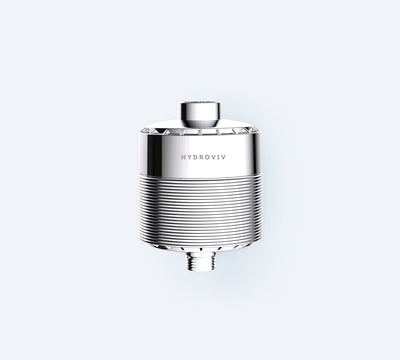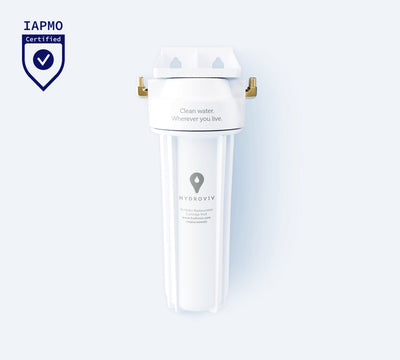Problems We Found In Houston's Drinking Water
RSS
**Updated May 3, 2021 to include Houston's most recent Consumer Confidence Report.
Analies Dyjak | Policy Nerd
Source Of Houston Drinking Water
A majority of Houston drinking water comes from the San Jacinto River, which has a long history of pollution. Remaining source water comes from the Evangeline and Chicot Aquifers. The aftermath of Hurricane Harvey caused a Superfund site (with high levels of Dioxin) to spill into the San Jacinto River. Raw water is then purified at three surface water treatment plants and 40 groundwater treatment plants. 16 supplementary groundwater plants provide water for the remaining 5 Houston systems.
Per and Polyfluoralkyl Substances (PFAS) In Houston Drinking Water
PFAS are a category of chemicals found in various non-stick/stain resistant products, as well as fire fighting foam. PFAS are considered to be "emerging contaminants" because they are not currently regulated by EPA, but are known to be toxic and persistent in the environment. Most municipalities are not required to test for, or remove, PFAS from drinking water. Elevated levels of PFAS have been identified in areas around the San Jacinto River, so it's likely in Houston tap water. Not all filters are designed to remove PFAS from drinking water. If you'd like find water filters that remove PFAS from tap water, check out this Duke/NC State study.
Arsenic Concentrations In Houston Drinking Water
Arsenic is a toxic heavy metal that is known to cause cancer and other health issues. Unlike lead, which distributes into water from plumbing, arsenic comes from the source water itself. The highest detected concentration of arsenic in Houston's main system was 8 parts per billion. While the average of 2.3 parts per billion is within EPA's regulated threshold, these levels triggered the municipality to make the following disclosure in the Consumer Confidence Report:
"Houston’s drinking water contains low levels of arsenic, but is below the state and federal action levels. EPA’s standard balances arsenic’s possible health effects against the costs of removing it from drinking water. EPA continues to research the health effects of low levels of arsenic, which is a mineral known to cause cancer in humans at high concentrations and is linked to other health effects such as skin damage and circulatory problems."
Hydroviv strongly recommends that anyone that lives in an area with more than 1 part per billion take steps to remove arsenic from their water, especially families with children.
Lead Levels In Houston Drinking Water
Lead enters tap water through older lead service pipes and lead-containing plumbing. When lead pipes, fittings, and valves are present in a home, lead can leach into the drinking water, and can reach dangerous levels. In the most recent data provided by the City of Houston, 10% of samples analyzed for lead in Houston are 4 parts per billion. Though the city is currently in compliance with extremely loose federal regulations, the EPA and CDC have both acknowledged that there is no safe level of lead for children. Additionally, the American Academy Of Pediatrics strongly urges any tap that produces water over 1 part per billion be addressed. Hydroviv Undersink filters are NSF/ANSI 53 certified to remove lead from drinking water.
Very High Chromium 6 Levels In Houston Drinking Water
Chromium 6 is an extremely toxic metal that is not currently regulated by the EPA. In recent years, Houston tap water has averaged 747 parts per trillion for Chromium 6. For the sake of perspective, these levels are 35 times higher than the concentration determined to have negligible impact on cancer risk. Earlier this year, Dr. Eric Roy (Hydroviv's Founder) wrote a highly-cited article specifically on the high levels of chromium 6 in Houston's tap water, the original source can be viewed here.
Pesticides And Petroleum Hydrocarbons Detected In Houston's Most Recent Round Of Testing
Low levels of the herbicides atrazine and simazine (both endocrine disruptors), as well as xylenes (a petroleum based VOC) were reported in Houston's main system.
Disinfection Byproducts (DBPs) In Houston Drinking Water
DBPs are a category of emerging contaminants that form when chlorine-based disinfectants react with naturally-occurring organic matter. Although these chemicals are not currently regulated very well, the EPA's website discloses that exposure to high levels of these chemicals is associated with an increased risk of bladder cancer, as well as kidney, liver, and central nervous system problems. The levels of both categories of regulated DBPs (TTHMs and HAA5) were elevated in Houston tap water.
Chlorine Levels In Houston Tap Water
Like most other cities in the U.S., Houston disinfects its water with chlorine to protect against waterborne illness. While not considered to be harmful on its own at levels found in tap water, people tend to find that filtering it from their water greatly enhances its taste and odor.
Still Have Questions About Houston Tap Water Or Water Quality In General?
Hydroviv is a water filtration company that uses tap water quality data to optimize water filters for each customer's water. The contaminants that we list above are what we consider to be major “points of emphasis” that we use to build water filters that are built specifically for Houston, but our filters provide broad protection against a wide range of contaminants found in Houston's tap water.
If you’re interested in learning more about water filters that have been optimized for Houston's water, or have questions about our Houston water quality report, feel free to visit www.hydroviv.com, reach out by email (hello@hydroviv.com) or through our live chat. We also frequently post water-related news on Twitter or Facebook. We pride ourselves in being a reputable source of information on tap water quality, and your questions will be answered by scientists, not salespeople (we don't have any salespeople on staff).
Please Share This Houston Water Quality Report Article On Social Media With Anyone You Think Would Benefit From The Information!
Recommended Articles For You:
How Did Hydroviv Filters Perform In A Duke University PFAS Study?
How Do I Remove Chromium 6 From My Tap Water?
What Are The Common Problems With Reverse Osmosis Filters?




